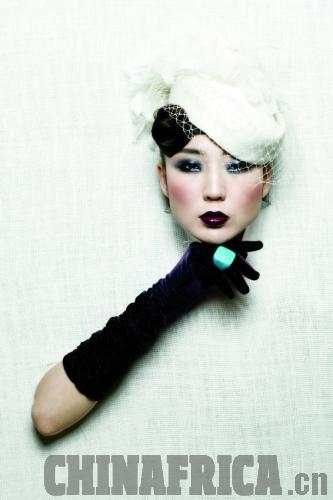| 
A Chinese proverb goes, "A person needs face like a tree needs bark."
In China, the word "face" does not simply refer to a person's visage. It has many connotations. Face, or mianzi, can be defined as an individual's dignity, self-respect, confidence, external public appearance, or image and status within a social structure. The concept of face is a universal concern for humans, but it has particular significance for the Chinese.
"It is not a face that can be washed or shaved, but a face that can be 'granted' and 'lost' and 'fought for' and 'presented as a gift,'" wrote Lin Yutang (1895-1976), an influential Chinese author, in the book My Country and My People. Lin believed face is the most salient point of Chinese social psychology, explaining that "abstract and intangible, it is yet the most delicate standard by which Chinese social intercourse is regulated."
"Face" is a cultural concept that has been influencing the Chinese for thousands of years. The historically renowned Chinese writer Lu Xun (1881-1936) believed it to be "the key to the Chinese spirit… grasping it will be like grabbing a queue – everything else will follow." Even today, it still penetrates every aspect of Chinese daily life.
A Confucian legacy
It's important to understand the concept of face in the light of Confucianism, which emphasizes social harmony and hierarchy. Many believe that even today in China, the philosophy holds major influence over interpersonal relationships and communication.
In the book Perspectives on Chinese "Face," Zhai Xuewei, a professor at Nanjing University's School of Social and Behavioral Sciences, comments on the origins of face. "It has its roots in Confucianism [promoting] social harmony by maintaining appropriate interpersonal relationships and networks," Zhai writes. Today, achievement is tied to an ability to "maintain harmonious relationships with superiors, peers, and those who are lower in rank."
Face is collective for the Chinese. Losing face may bring disgrace to the family or organization to which an individual belongs, as much as to the person him/herself. This applies at all levels of Chinese society.
Children are taught not to lose the family face when they are young. "When my parents felt I had failed their expectations or done something wrong, they would often say angrily, 'you've lost all our face,'" explains Li Mingming, a 24-year-old office worker in Beijing.
On the flip side, achievement is not just considered an honor for one person, but also for his or her family, organization or community. Given this, it's easy to understand why international basketball star Yao Ming and track and field champion Liu Xiang are considered national heroes. Their achievements have enhanced face for citizens nationwide.
Face is also hierarchical in China. Another tenet of Confucianism, hierarchy, in spite of its ancient roots, is pervasive throughout the country's modern society and mentality.
"Great attention is paid to status and rank," explains Zhai. "A person's amount of face depends largely on the social position he or she holds. The higher the rank, the more face the person has, and the more likely he or she will be given face."
Li confirms Zhai's claims. "In most cases, I won't argue with my parents in public, nor with my supervisor at my company. I just want to give face and pay respect to them," she says.
This also applies to business deals. "Foreign business people should understand that offending an important person in a deal with a Chinese partner means offending the entire company," notes Adam Mahamat, Chairman and CEO of Africaccess Consulting. "The result may be the loss of business opportunities."
|